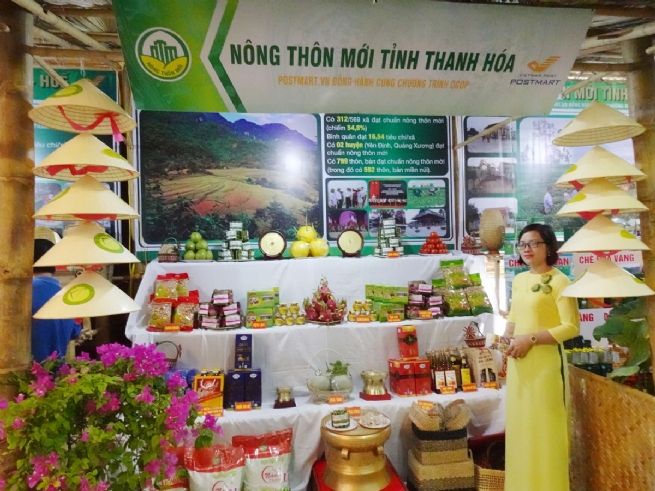After many years of carrying out the National Target Program for New Countryside Construction, Thanh Hoa province has found that developing production and raising income for rural people plays a decisive role. The One Commune One Product (OCOP) Program is much expected to catalyze local economic development.

After more than eight years of hard work of the entire political system and all the people, Thanh Hoa province has reaped sweet fruits, with high economic growth, better material and spiritual life of people, and heightened political security. These positive signals are undeniable but it is odd to confirm that existing potential is fully tapped. To do so, there is a dire need for an innovative stepping stone to make breakthroughs and OCOP is the most perfect solution now.
In reality, Thanh Hoa province is among a few localities to have necessary conditions to make breakthroughs. Its localized typical products included Nga Son mat, Hong Do silk, Dong Son bronze drum, som moo (preserved pork sausage), Phu Quang glutinous rice cake, Tu Tru black rice cake, Ba Lang fish sauce, Truong Giang conical hat, litchi candy, Luan Van pomelo, yellow orange, and Thuong Xuan cinnamon. The province also has dozens of key agricultural products and over 160 products and product groups of local advantages. In spite of having a variety of locally typical products, Thanh Hoa province’s agricultural products and handicrafts still have certain limitations, particularly simple designs, weak competitiveness, few branded products, and consumption reliance on the domestic market.
The OCOP Program in 2018-2020, with a vision to 2030, was approved by the Thanh Hoa Provincial People’s Committee in late 2018. The program aims to develop production and business forms to standardize competitive traditional agricultural products, non-agricultural products and services in domestic and international markets to support rural economic development. Thanh Hoa province strives to standardize about 30% of key agricultural products and local products. By 2020, at least one product is recognized as national OCOP product; 10 products as provincial OCOP, and 30 products as district OCOP products. By 2030, at least five products are recognized as national OCOP products, 30 products as provincial OCOP products, 150 products as district OCOP products. By then, the province will have five cultural village tourism community models, two creative OCOP design, development, promotion and marketing centers; complete and apply Technology 4.0 to make and market OCOP products.
|
After one year of implementation, the OCOP Program, for the period of 2018 - 2020, has achieved initial success. More than 200 OCOP products are qualified for 3-star, 4-star and 5-star levels. Products ranked 1-3 stars are for the domestic market while highly competitive products of 4-5 stars are for export. To support localities to carry out the Program, the Ministry of Agriculture and Rural Development has developed 26 OCOP evaluation criteria and OCOP product evaluation and ranking procedures for three levels: district, province and nation. |
Most recently, the Provincial People’s Committee issued Plan 134/KH-UBND on implementation of OCOP Program in 2019. This aimed to promote a thorough understanding of the importance and significance of OCOP Program, disseminate OCOP principles and cycles to all-tier government agencies, include the OCOP Program to resolutions and action programs of Party committees and authorities.
OCOP-registered products in 2019 will be consulted by competent agencies on product registration, business plan and organizational structure; on production facilities, machines and equipment; on product valuation and adjustment to market demands; and on trade promotion and marketing. The fund for this will be taken from the National Target Program for New Countryside Construction and other fund sources integrated with scientific - technological sources, industrial promotion sources, corporate and cooperative sources and credit sources.